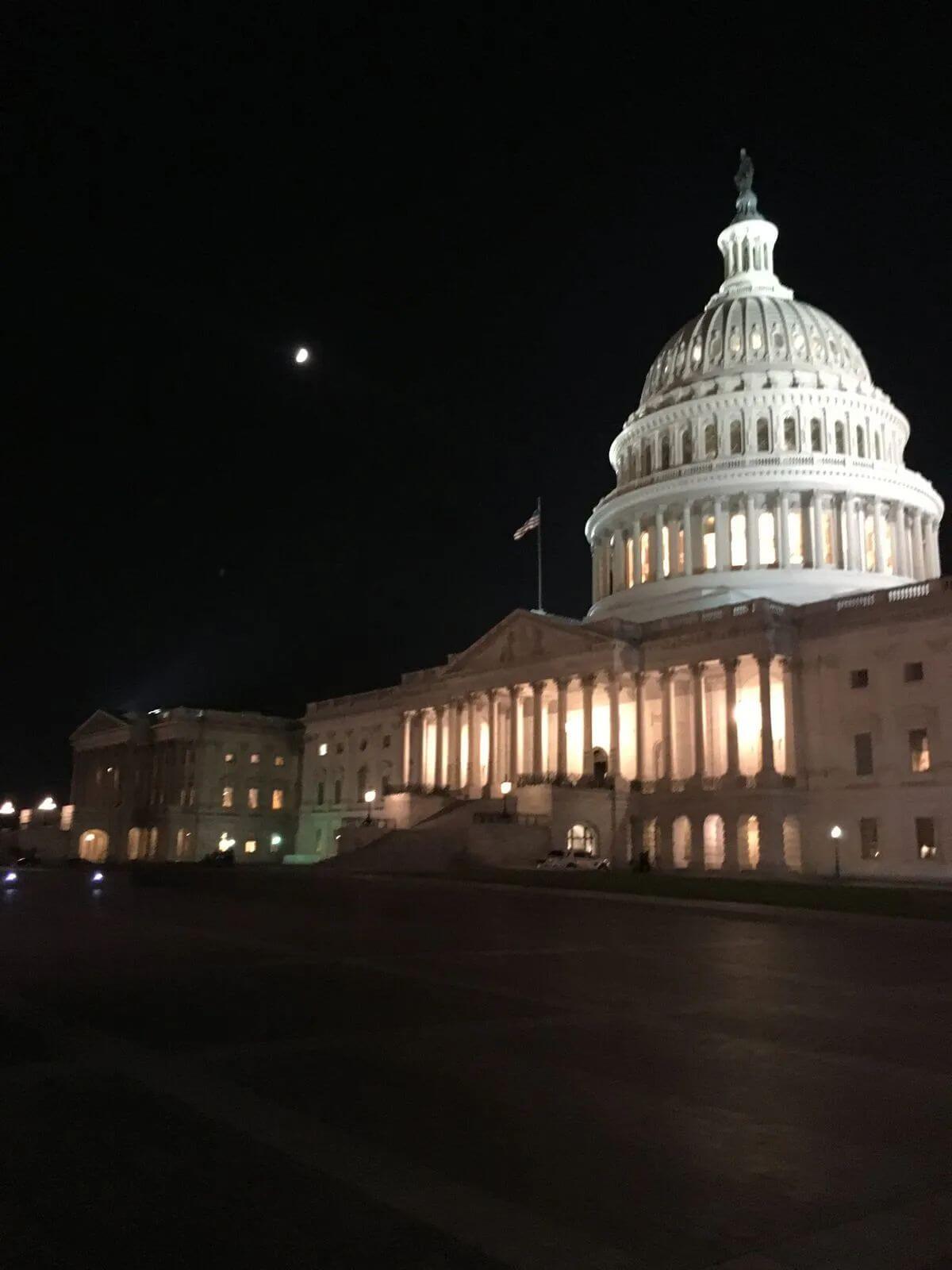11/20 Torchbearer Weekly Policy Update
Welcome back! We hope you enjoyed your weekend. Thank you for allowing us to be your trusted source for news at the local, state, and federal levels.
Local, state, and federal highlights in this week’s memo include:
- Governor Shifts Oversight of LEAP Water Study Away From IEDC
- Averting Government Shutdown, Congress OKs Temporary Funding Until January
- Task Force Recommends Boosting Food Assistance Access
- State Health Care Panel Adopts Final Report, Targets Prior Authorizations
- Cooler Weather, Cooler Inflation
- State, Localities Start To Spend the $507 Million From National Opioids Settlement
- INDOT Faces Fiscal Cliff WIthout Road Funding Changes
- FSSA Adds Second Round of Employer-Sponsored Child Care Fund Grants
- Indiana Cities Are Dishing Out Thousands Of Dollars To Get Out-Of-State Workers To Relocate
- Share the Torchbearer Newsletter with Your Network!
- Important Dates
Let’s dive in.
Governor Shifts Oversight of LEAP Water Study Away From IEDC

Breaking: Governor Eric Holcomb has directed the Indiana Finance Authority to oversee a water supply study along the Wabash River to determine if water can be piped to supply the LEAP Innovation and Research District without harming other communities.
Why it matters: The study is important to ensure that the water supply to other communities is not jeopardized.
The big picture: The Indiana Economic Development Corp. had commissioned a study to withdraw water from an aquifer connected to the Wabash River and transport it to LEAP, a manufacturing district near Lebanon.
Yes, but: Some residents and municipalities oppose the project, expressing concerns about the availability of excess water and the impact on the Wabash River.
What's next: The Indiana Finance Authority will conduct a comprehensive regional water study for north-central Indiana. (IBJ)
Averting Government Shutdown, Congress OKs Temporary Funding Until January

Ending the threat of a government shutdown until after the December holidays, Congress gave final approval Wednesday night to a temporary government funding package that pushes a confrontation over the federal budget into the new year.
Why it matters: The bill removes the threat of a government shutdown days before funding would have expired.
The big picture: The spending package keeps government funding at current levels for roughly two more months while a long-term package is negotiated.
What's next: Congress is expected to focus on the Biden administration’s requests for Ukraine and Israel funding. (IBJ)
Task Force Recommends Boosting Food Assistance Access

An interim land use task force set its sights on food insecurity on Tuesday — recommending legislation to make it easier for Hoosiers to qualify for food assistance, fund transportation or delivery for their groceries and more.
Why it matters: About one in every 10 Indiana residents didn’t have consistent access to enough food in 2021, according to Feeding America. The task force's recommendations aim to address this issue and improve access to healthy food for Hoosiers.
By the numbers: More than 700,000 Hoosiers face food insecurity, but only about 40% are income-eligible for SNAP. The task force's recommendations seek to streamline the SNAP application process and improve access to transportation and delivery services for SNAP participants.
The big picture: The task force also made recommendations on zoning, farmland preservation, infrastructure, housing assistance, and healthcare access. These recommendations aim to address broader issues related to land use and development in Indiana.
What's next: The task force's recommendations will be considered by lawmakers, and there is hope for another meeting ahead of the next budget session to maintain momentum. (Indiana Capital Chronicle)
State Health Care Panel Adopts Final Report, Targets Prior Authorizations

The interim Health Care Cost Oversight Task Force unanimously agreed on a final report detailing its recommended legislative proposals for the upcoming session, including a closer look at prior authorization denials, physician reimbursements, and mergers between health care providers.
Why it matters: The recommendations focus on transparency and driving down costs for Hoosiers.
By the numbers: Doctors spend roughly 14 hours per week completing prior authorizations, leading to delays and adverse events. Low Medicaid reimbursements and prior authorizations drive private practice physicians to merge or consolidate.
The big picture: The recommendations aim to increase transparency, standardize processes, and incorporate a neutral, third-party review.
Yes, but: Prior authorizations cannot be completely eliminated, but reforms can be made to improve the system.
What they're saying: Nathan Kaufman advocates for standardization and peer-to-peer reviews to address denials and overhead costs.
What's next: The recommendations will be considered for legislative action in the upcoming session. (IBJ)
Cooler Weather, Cooler Inflation

Disinflation is back: October's Consumer Price Index shows further progress on inflation, an about-face from September data.
Why it matters: The cooler data is the latest to suggest more subdued, though not falling-off-a-cliff, economic activity.
What they're saying: "The inflation fever has broken in the United States," wrote Bill Adams, chief economist for Comerica Bank, in a note.
What's new: October CPI was flat (or, unrounded, up 0.04%) as gasoline prices plunged.
- Core CPI, which excludes food and energy prices, rose 0.2%, a tick cooler than September. That measure has risen at a 3.2% annualized rate — down from the 3.6% in September.
- Particularly promising, services excluding housing and energy costs — closely watched by the Fed for signs of shifts in underlying inflation — rose only 0.2%.
Of note: Shelter costs rose 0.3%, a big slowdown from September's 0.6% jump, largely thanks to a 2.9% drop in hotel and motel prices. It suggests a spike in those prices in September was a fluke.
- Lodging was one of several travel-related categories where prices fell outright. Airfares dropped 0.9%, and car rental prices dropped 1.5%.
- It's just one month, but it could be a sign that the post-pandemic price explosion for everything travel-related may be coming to an end, with supply and demand coming into better balance.
Between the lines: Plenty of risks are ahead, including any possible fallout from current geopolitical conflicts.
- But the numbers offer optimism that inflation is receding to a more tolerable level — without the painful economic consequences that some anticipated.
The bottom line: "Ain't no reason to believe the last inflation mile will be the most difficult," EY-Parthenon economist Gregory Daco wrote.
- "Slower consumer demand, reduced housing rents, lower profit margins, easing wage growth and restrictive monetary policy represent the ideal disinflationary combo heading into 2024." (Axios)
State, Localities Start To Spend the $507 Million From National Opioids Settlement

Only $7.1 million has been used so far from the National Opioid Settlement in Indiana, despite billions of dollars flowing into the state over the next two decades.
Why it matters: The funds are meant to address the devastating impact of opioids and provide treatment and prevention programs in areas with high overdose rates.
By the numbers: On average, four Hoosiers die each day from drug overdoses, and 81% of abatement funds and 87% of unrestricted funds haven't been spent by local governments.
The big picture: Indiana is facing a shortage of treatment options for addiction, and jails remain one of the few places to receive treatment.
Yes, but: Smaller towns and townships are struggling to make use of their small amounts of funding, leading to confusion and frustration.
What's next: A dashboard of spending will be available soon, and more complex reports will be released as more funds are spent. (Indiana Capital Chronicle)
INDOT Faces Fiscal Cliff Without Road Funding Changes

Indiana's Department of Transportation (INDOT) expects to lose billions of dollars in revenue in the coming decades as more Hoosiers buy alternative fuel-using and fuel-efficient vehicles.
Why it matters: These revenue losses could have significant implications for funding road infrastructure in Indiana.
By the numbers: INDOT projects a loss of $20 million in revenue in fiscal year 2025, and by 2040, losses could be between $150 million and $506 million annually.
The big picture: As more people switch to alternative fuel vehicles, the funding for road infrastructure will need to be reevaluated.
Yes, but: Lawmakers could mitigate the funding drops by raising fuel taxes with inflation.
What's next: The interim committee will gather information and put together policy recommendations for the next legislative session in 2025. (Indiana Capital Chronicle)
FSSA Adds Second Round of Employer-Sponsored Child Care Fund Grants

The Indiana Family and Social Services Administration’s Office of Early Childhood and Out-of-School Learning will extend the Employer-Sponsored Child Care Fund application window and award grants in two rounds.
Why it matters: The $25 million fund will mobilize employers and communities to create or expand child care offerings that address the needs of working Hoosiers.
By the numbers: The program will award grants of up to $750,000.
The big picture: The program is part of the state's broader efforts to strengthen the early care and education sector, providing support for today's workforce and investing in tomorrow's.
What's next: The first round of applications is due on Nov. 22, with announcements of awarded employers and organizations in December. (FSSA)
Indiana Cities Are Dishing Out Thousands Of Dollars To Get Out-Of-State Workers To Relocate

Museum passes, concert tickets, coworking spaces and thousands of dollars in cash are enticing hundreds of families to relocate to Indiana — and even more are expected to make the move as a growing incentive program continues to expand.
Why it matters: Various municipalities in Indiana are tapping into new funding pools to recruit out-of-state remote workers, offering cash and other unique incentives to attract talent and boost local economies.
By the numbers: Since the program's launch, 337 knowledge workers have relocated to Indiana, with more than 80% of them staying for at least a year.
The big picture: This program allows communities to differentiate themselves and connect remote workers with affordable housing, amenities, and networking opportunities, creating a long-term retention strategy.
What's next: The program plans to expand its recruitment pool to include other in-demand professionals like teachers, police, and nurses, with the goal of increasing the number of participants to 1,000 to 2,000 per year. (Indiana Capital Chronicle)
Share the Torchbearer Newsletter with Your Network!

Not signed up for our weekly newsletter? Sign up today!
Important Dates

Monday, November 20th - State and Local Tax Review Task Force @ 10am
Tuesday, November 21st - Organization Day
Thursday, November 30th - Government Reform Task Force @ 12pm
Monday, January 8th - Anticipated 2024 legislative session start date
